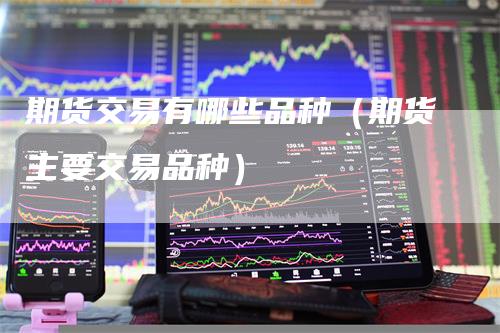
What are the main types of futures trading products?
Futures trading involves buying or selling contracts for future delivery of certain assets or commodities. There are numerous varieties of futures contracts, each focusing on a different underlying asset or commodity. Here are some of the main types of futures trading products:
Equity futures
Equity futures are contracts based on the performance of individual stocks or stock indices. They allow traders to speculate on the future direction of stock prices without actually owning the underlying assets. Popular equity futures include contracts based on the S&P 500, Dow Jones Industrial Average, and Nasdaq 100.
Commodity futures
Commodity futures involve contracts for the future delivery of raw materials or agricultural products. These products include but are not limited to gold, silver, crude oil, natural gas, wheat, corn, soybeans, cotton, and coffee. Commodity futures provide opportunities for traders to speculate on the price movements of these physical goods.
Foreign exchange futures
Foreign exchange futures are contracts that allow traders to speculate on the future exchange rate between two currencies. These contracts are often used by businesses to hedge against currency risks, but they can also be traded by individuals looking to profit from currency fluctuations. Major currency futures include contracts based on the US dollar, euro, Japanese yen, British pound, and Swiss franc.
Interest rate futures
Interest rate futures involve contracts based on the future movement of interest rates. Traders use these contracts to speculate on changes in interest rates and to hedge against interest rate risks. Examples of interest rate futures include contracts based on the US Treasury bonds, Eurodollar deposits, and euro-bund futures.
Energy futures
Energy futures are contracts based on the future prices of energy commodities such as crude oil, natural gas, and gasoline. These futures allow traders to speculate on the price movements of these essential energy sources. Energy futures are heavily influenced by geopolitical events, supply and demand factors, and weather conditions.
Agricultural futures
Agricultural futures involve contracts for the future delivery of agricultural products such as wheat, corn, soybeans, sugar, cocoa, and coffee. These futures are influenced by factors such as weather conditions, global supply and demand, and government policies affecting agricultural markets. Traders use agricultural futures to profit from price fluctuations and to hedge against price risks.
Conclusion
The world of futures trading offers a diverse range of products to suit the needs of various traders. Whether it's equity, commodity, foreign exchange, interest rate, energy, or agricultural futures, each type provides unique opportunities for speculation and risk management. Understanding the different types of futures trading products is crucial for anyone looking to venture into this exciting and potentially lucrative market.